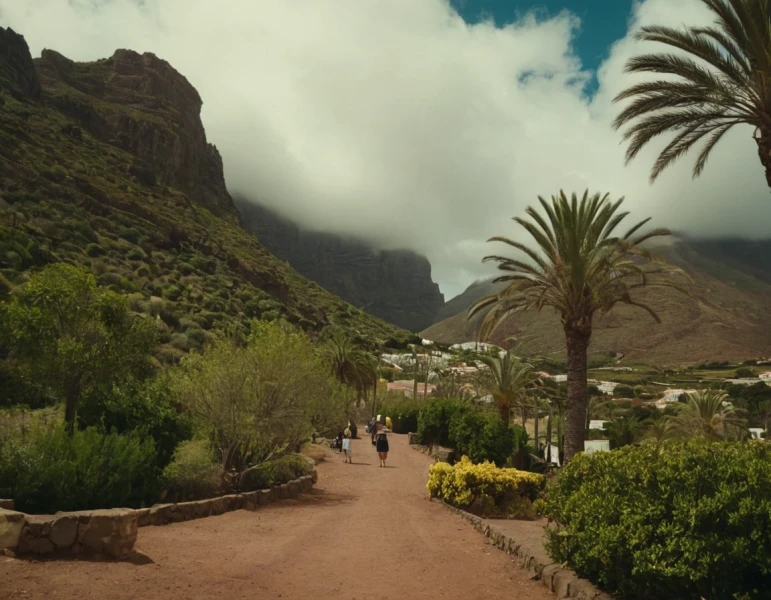Educa UNIVERSITY|EDUCATION
Government of the Canary Islands Education: A Personal Journey through the Education System of the Islands
Related Masters
Government of the Canary Islands Education: A Personal Journey through the Education System of the Islands
For as long as I can remember, the Government of the Canary Islands and its education system have been part of my life. My name is Rubén Águila, and throughout my career, I have had the opportunity to see firsthand how the Ministry of Education of the Canary Islands Government works, its challenges and, above all, the opportunities it offers to the citizens of the islands. In this article, I am going to share with you my experience and analysis, from a frank point of view, but with the authority that gives me having lived closely this very particular education system.
What is the Canary Islands Government Education?
The education system in the Canary Islands is governed by the Consejería de Educación, Universidades, Cultura y Deportes, in charge of everything related to education in the archipelago. This body covers not only primary and secondary education, but also vocational training, university education and physical activity and sports. In addition, they manage a wide variety of scholarships, grants and subsidies for Canarian students and families, allowing more young people to access quality education regardless of their economic circumstances.

And what does this mean in practice? For those of us who have been through this system, it's much more than just administration. It is a gear that moves from the smallest classroom in a rural school to language immersion programs in foreign countries, including teacher training and school infrastructures.
My Personal Experience with Education in the Canary Islands
I was born and raised in the islands, so I can say without mincing words that I know what I'm talking about. In the 1990s, when I was a primary school student, the Canarian education system was in the midst of modernization. I clearly remember how my teachers complained about the lack of resources, but also how little by little the Canarian Government was introducing new policies and adapting its structures to guarantee a more inclusive education.
Today, things have changed a lot. Access to digital resources and infrastructures have improved dramatically. The EVAGD initiative is a clear example of this: an educational platform that combines face-to-face and virtual education, allowing non-university public schools to integrate technological tools into their classes. In my day, this would have been unthinkable. Even classrooms are connected to the Internet now!
Educational Policies: More Than Standards
One of the aspects that has surprised me most as an adult is the amount of policies that the Regional Ministry of Education develops and manages. From vocational training to student research projects, the educational offer is wide and designed to adapt to the needs of the socioeconomic context of the archipelago. In recent years, the Government of the Canary Islands has implemented language immersion programs in foreign languages, which seems to me to be an imperative opportunity for young islanders who wish to compete at a global level.
Another fundamental aspect is the economic support that the Regional Ministry offers families. During my youth, it was not uncommon to see classmates dropping out of school for economic reasons. Today, thanks to scholarships and grants, such as transportation aids or travel grants for extracurricular activities, this has decreased considerably. And I can assure you that Canarian public education has improved both in quality and accessibility.
Vocational Training: A Pillar of the Future
I want to highlight here the importance of vocational training. In a context such as the Canary Islands, where tourism is the main economic source, the need for qualified personnel in different sectors is vital. The Ministry of Education has put a lot of emphasis on strengthening the offer of medium and higher education in areas such as tourism, hospitality and technology. On a personal level, I have friends who have followed this path and today are working in the tourism sector, with very good job prospects.
Also, dual vocational training is increasingly present, allowing students to combine their training with real internships in companies. This is a much needed and effective change so that young Canary Islanders are better prepared for the labor market.
Challenges and Opportunities
Of course, not everything is perfect. Education in the Canary Islands faces challenges, especially in the more remote areas of the islands. Despite progress, some centers still lack adequate infrastructure, and teachers, although generally well prepared, sometimes face overloads of work due to high demand. However, I dare say that these problems are not unique to the Canary Islands. The difference lies in how the Regional Ministry has known how to manage and overcome obstacles, adapting its educational offer to the insular reality.
A Promising Future
The Government of the Canary Islands is making efforts to ensure that its educational system remains punctual and accessible. Projects such as the Days of emotional wellbeing in education, which promote the importance of school climate and emotional support for students, are indicative of where education in the islands is heading: a more human, inclusive and adapted education to current needs.
For those of us who have grown up in this system, seeing how it has evolved over the years is rewarding. The Canary Islands, with its particularities and geographical challenges, has known how to take advantage of its resources to offer a quality public education that adapts to the new social and technological demands.
Faculties
Trainings
The faculties embrace diverse academic disciplines and fields of study, opening doors to new perspectives and exploring different spheres of wisdom in a constantly evolving world.














